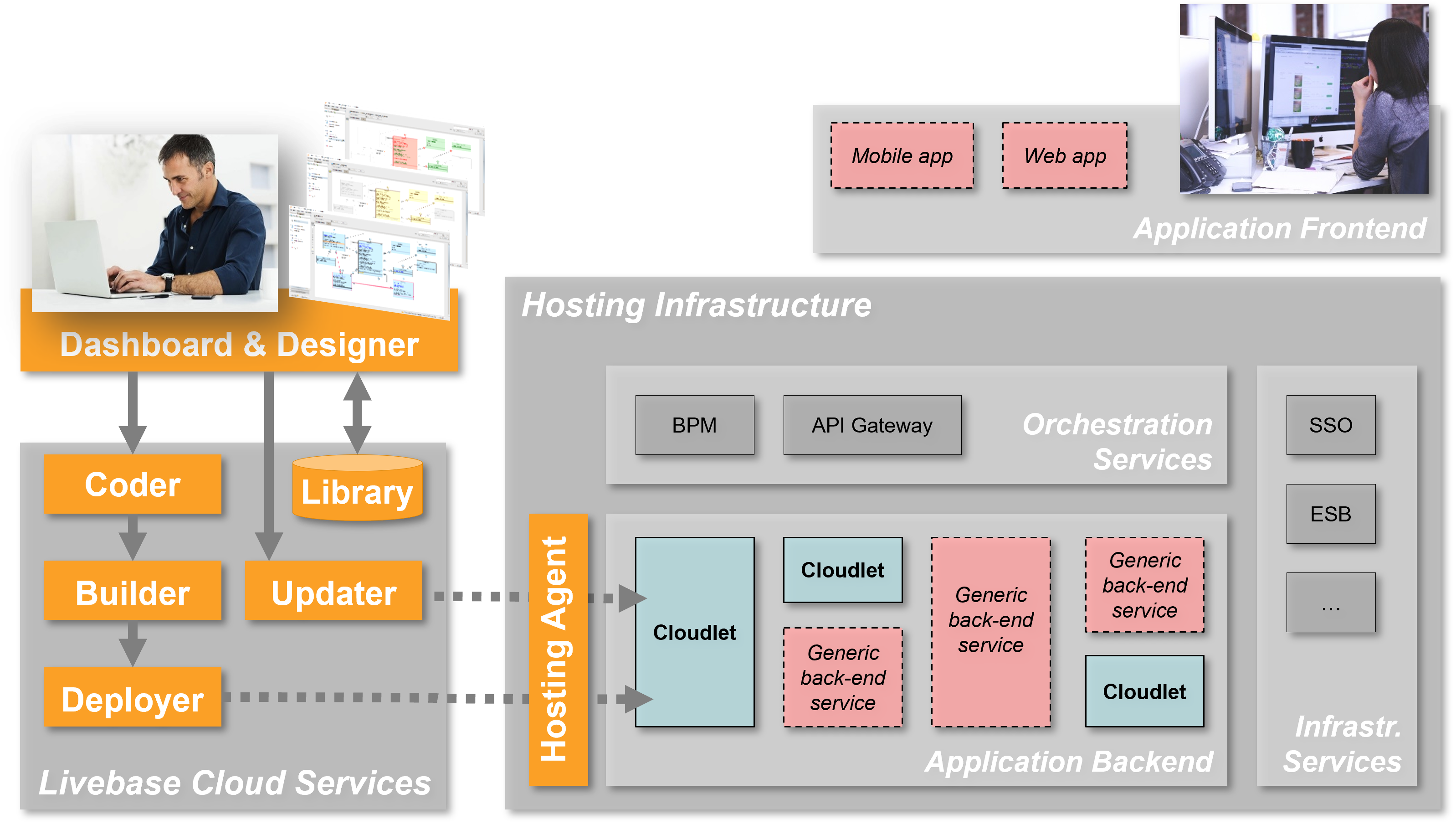Development process

Empowering developers and leaving them free
Unlike most Low-Code development platform, Livebase has been conceived with an open and best-of-breed approach to low-code software development. In fact, no platform can effectively support all the different areas of software development.
We conceived Livebase laser-focused on creating and maintaining transactional data services, which we called Cloudlets , the easiest and most productive way possible, with a few cornerstones in mind: robustness, safety, scalability, interoperability and long-term maintainability.
On the other hand, we made easy and safe to integrate Cloudlets with other backend and frontend components by means of a powerful and self-documenting GraphQL API, allowing developers to use the best technologies and tools for such components, and to leverage the growing ecosystem of GraphQL tools.
A better way to retrieve and manage business data
According to the Models they are generated from, Cloudlets can incorporate sophisticated data management algorithms (e.g. virtual attributes, objects preview, historicization and deep cloning), transaction validation rules (e.g. objects associability) and role-based access control rules.
Moreover, Cloudlets can be extended with additional logic (plugins) coded in any JVM-compatible language, way safer, maintainable and portable than traditional stored procedures.
A solid foundation for any service-oriented enterprise application
With Livebase, developers can:
- use their preferred BPM environment to implement high-level processes , and rely on the underlying Cloudlets to simplify access to business data and centrally enforce data-quality and permission rules;
- use their preferred GUI design tools and framework (Vue, React, Angular, etc.) to build the most fancy and compelling user interface they can imagine, and rely on the underlying Cloudlets to retrieve the business data they need (native or derived) structured as they need it.
Full support for enterprise development procedures
Any activity performed on the Livebase Dashboard to create and manage Cloudlets can be also performed programmatically by a Jenkins continuous integration/delivery procedure, via a Gradle integration plugin. This allows to generate and deploy Livebase Cloudlets along with other application components in a coordinated fashion, my means of a unique integration/delivery procedure.
Furthermore, Livebase supports Models versioning and allows to deploy the different version of a Model into multiple Cloudlets (e.g. for development, integration, valudation, production, hot-fix) on the same or on different public or private hosting infrastructures.